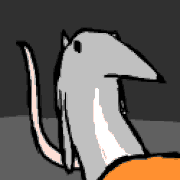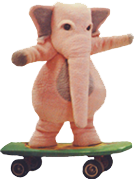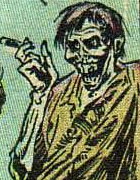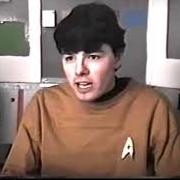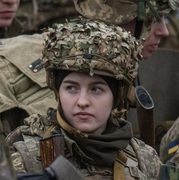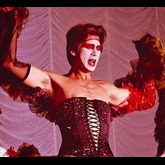|
Frodo appeared in the kitchen doorway at an unseasonably early hour for a hobbit of leisure, lured thither, as Sam had suspected he would be, by the scent of frying mushrooms. He paused at the threshold, the tip of his elegant nose twitching like a mouse’s when a morsel of cheese was nearby, and said reproachfully, “You are too cruel, beloved, I vow. I had intended to have a lie in this morning, and now look what you’ve done.” “Mornin’, love. Your tea’s ready,” Sam said with unimpaired good cheer, ignoring the accusation in favor of admiring Frodo’s delectably disheveled appearance—tumbled ebon curls and sleep-flushed cheeks that turned his eyes bluer than the rain-washed harebells in the garden. Frodo's equally elegant eyebrows elevated. "Tea?" he said, and moved toward the table, where a steaming mug awaited him. “I take it all back, sweeting. You are, in truth, a wizard.” “There ain’t no wizardry involved, not when mushrooms are cookin’ and you can smell ‘em,” Sam replied, grinning. He gave the frying pan a practiced shake to prevent the sizzling mushrooms from sticking. “I reckoned you’d be along any minute now.” “Am I that sadly predictable, my love?” Frodo feigned a pout, and stretched, a long languid stretch, more cat than mouse now, and no garden variety tabby, but one of Queen Beruthiel’s famous hunting cats, sleek and only half-tamed. The tease, Sam thought, as the loosely belted tie of Frodo’s deep crimson brocade dressing gown came undone, revealing fully what had barely been concealed. He knows right well what he’s doin’ to me. The cooking of breakfast seemed suddenly less than urgent as earthier appetites took precedence. Sam removed the frying pan from the flames and set it on the counter; the mushrooms were as close to done as made no difference, and besides, they needed to cool before he could make the omelet he’d planned for Frodo’s breakfast. Sam made no effort to tamp down the lustful anticipation that was swelling his cock, as he might have on another morning. But this morning rain was lashing at the windows and there’d be no work for him in the garden. Work of another kind, the most pleasurable kind, though… “Predictable?” he repeated, and his voice was husky now. “You’re no more predictable than this rainstorm, Frodo.” As if on cue, thunder rumbled. A few seconds later a brilliant flash illuminated the kitchen, and sparked a sensual glow in Frodo’s eyes that arced across the room and kindled a corresponding fire low in Sam’s belly. The tiny hairs on the back of his neck stood on end and his senses swam, as if the air had turned to honeyed wine. Frodo drew a chair from the table with slow deliberation and turned it around. Eyes locked with Sam’s, he shrugged out of his dressing gown, letting it fall so that it draped over the chair in a crimson waterfall. Then he sank down into the chair, facing Sam. He hooked one knee over a chair arm, and let the other splay to the side in wanton invitation. His cock, like Sam’s, was waking to fullness, darkening visibly from blush pink to rose red. Against the crimson silk, his milk-white skin glowed and his eyes burned as intensely blue as the flame at the heart of the cook-fire. With mouth gone dry, Sam watched as Frodo trailed a hand across his chest, circling a pale pink nipple with his forefinger until it tightened to a hard bud, then downward, following the downy trail to the tangled nest of mahogany brown curls at its end. His cock stood stiffly out now, curving upward so that the tip pointed to the soft swell of his belly. He encircled it with his fingers, squeezed, and his head fell back on a soft exhale of pleasure. Sam moved then, for though watching Frodo pleasure himself was one of his chiefest delights, this morning such pleasure was his to bestow. “Frodo, stop,” he commanded, crossing the short distance into two swift strides and dropping to his knees on the crimson brocade. Frodo’s head snapped up as Sam took hold of his wrist, gently but firmly. “’Tis mine,” he added sternly. Obediently, Frodo relaxed his grip and allowed Sam to pull his hand away. His breaths were coming quickly between parted lips, and his eyes were wide with pleased anticipation. Sam knew that Frodo liked it well when he took the initiative, overcoming the instinctive deference that years of habit and training had instilled. Sam grasped Frodo’s plump shaft beneath the head and tapped it firmly against his cheek, chuckling as Frodo let out a startled cry at this unexpected love play. Sam repeated the tap on his other cheek, sharper this time; a spray of sticky-warm fluid spattered his cheek and the side of his nose, and Frodo whimpered, “S-Sam.” His hands clutched the arms of the chair with a white-knuckled grip. “I’d not want you thinkin’ I’m predictable,” Sam murmured with sly humour, and moved his hand down the silken length, rhythmically squeezing and releasing, ending by sliding his fingers around Frodo’s bollocks and massaging them. “Y-You are anything b-but, beloved,” Frodo stuttered, splaying his leg even wider to give Sam better access. Sam set the flat of his tongue at the base of Frodo’s cock, and licked upward in one sweeping motion. With the tip of his tongue and then his teeth, he teased the sensitive spot on the underside of the crown, listening with the most intense satisfaction to Frodo’s incoherent whimpering moans. There was no greater reward for Sam than to drive that oh-so-self-controlled, indolent gentlehobbit Frodo Baggins to mindless pleasure. Moving his hand again, this time to hold Frodo’s shaft in position, Sam bent his head and took him into his mouth, loving how his lips had to stretch to encompass him, loving the warm salt-musk taste of the fluid that leaked from the slit and provided needed lubrication as he hollowed his cheeks and sucked, hollowed his cheeks and sucked, repeating the action until Frodo writhed on the slippery brocade and his fingers tangled painfully in Sam’s hair, and he gasped, “Deeper, Sam, take me deeper.” At that, Sam tensed, and Frodo’s wet cock slipped from his mouth. This was a skill he had not yet quite mastered, and he wanted to, he wanted to so desperately, to give Frodo the same earth-shattering bliss that he gave to Sam when he took him deep and brought him to climax. Frodo’s fingers gently tugged Sam’s head up. “Sweeting, I know what it is that you fear, but early morning is the very best time to try this. Your throat will be more relaxed and less likely to close up. So stop fretting and believe you can do it, hmm?” he coaxed with an encouraging smile. Frodo’s mastery of the erotic arts was unparalleled (a matter of both gratitude and undeniable jealousy for Sam, who tried not to think of the numerous lovers in Frodo’s past), and if he said Sam could do it then do it Sam would, and prove his mettle at last. “All right,” Sam said with determination, grasping Frodo’s shaft again and placing his lips around him. “Then open wide, Samwise, I’m coming in,” Frodo said in a teasing voice, and before Sam could so much as think about tensing up, Frodo lifted his hips and pushed into Sam’s mouth, sliding smoothly inside and not stopping until he was in as far as he could go, and the tip of Sam’s snub nose was tickled by that nest of mahogany curls. He’d done it, Sam exulted, and with no other outlet for his joy, hummed happily deep in his throat. Frodo moaned, “Oh yes, beloved, oh yes, do that again…” So he did, and was rewarded by another ecstatic moan from Frodo, who withdrew his cock slightly and then thrust, and again Sam took him down easily, and he wondered why he had ever thought this impossible. His next pleased hum vibrated along Frodo’s cock with such potent effect that a spurt of welcome, lubricating warmth trickled down his throat. “Oh Samwise, you…” Frodo gasped, holding Sam’s head still as he withdrew even further and thrust even harder this time, but whatever he’d been intending to say went forgotten as Sam, confident now, slid his hands beneath Frodo’s firm, rounded buttocks and grasped them firmly. In, out, faster, slower, he controlled the tempo and depth of Frodo’s thrusts, until Frodo was once again writhing mindlessly, consumed by the pleasure Sam was giving him; until, buried deep, he arched up and climaxed with a cry that drowned out the sound of the rain beating against the window-glass. Sam didn’t release Frodo until he was limp and fully spent; only then did he sit back on his heels, licking his lips with a satisfied murmur, and feeling as proud as he ever had in his life—especially at the sight of Frodo, slumped against the chair-back as if his very bones had dissolved, and regarding Sam with a dazed, wondering expression on his face. Sam climbed to his feet, ignoring the demand of his own erection pressing uncomfortably against the slightly-too-snug placket of his breeches. He’d taken more than sufficient pleasure from what had just passed, and required nothing else. Besides, there were fried mushrooms waiting and an omelet to cook. Frodo needed feeding up. Smiling contentedly, Sam plucked the tea mug from the table and held it out to Frodo. “Best drink up your tea afore it gets stone cold, love,” he advised with a cocky grin. Frodo, that most eloquent of gentlehobbits, accepted it without a single word.
|
|
|
|

|
| # ? May 7, 2024 05:42 |
|
Frodo/Sam/Gollum threesome next please
|
|
|
|
eSports Chaebol posted:my friends and i watched the the extended editions of the first two on DVD the before seeing the midnight premiere of RotK yeah, fotr the extended is worthwhile, not for the rest. Saruman's final scene is like an outtake from the Beastmaster 3D
|
|
|
|
Colonel Cancer posted:Frodo/Sam/Gollum threesome next please you might have to do it yourself Gollum had noticed subtle changes in Frodo’s behaviours since the ring had come into his possession. These changes made Gollum extremely horny, especially the way he would always have his fingers wrapped around the ring. Gollum wondered what those soft hands would feel around his member. It kept him up all night, most nights, if he did fall asleep, he would dream of Frodo and his magic hands. But tonight was different, tonight he was going to feed his desire, the fire inside him.. He wanted to surprise Frodo tonight. He crawled up to Frodo, making sure to be quiet. He tugged Frodo’s sleeping bag off him and unwrapped him from his cloak, making it easy to undress him, when the time came. Frodo woke up at the sudden sold his body was exposed to. He woke up to find Gollum straddling him, looking straight into his eyes. Frodo was confused at first, why was Gollum on top of him? Where had his sleeping bag gone? And he grew even more confused, as his soft dick started hardening. Gollum made slow rotating movements on top of him. Gollum felt Frodo’s dick start to harden underneath him and his erection grew so large, his loincloth couldn’t cover it. Gollum started to unbutton his shirt. “Gollum…” “Shhhh, Daddy’s come to make it better” he croaked out He continued to unbutton Frodo’s shirt, when finished Gollum threw the shirt to one side, and started trailing his knobbly fingers up and down Frodo’s chest, circling his rosy nipples with a dirt encrusted finger. Frodo let out a weak mewl at the teasing. Gollum bowed his head down and started licking and sucking on Frodo’s nipples, Frodo let out a weak moan of protest as Gollum started nibbling Frodo’s nipples with some of his remaining nine teeth. Frodo was now fully hard beneath Gollum, gridding his groin upwards desperate for contact with Gollum’s crotch. Gollum undid Frodo’s trousers and pulled his pants down to expose Frodo’s throbbing cock. Gollum wrapped one of his hands around Frodo’s dick and started pumping his fist up and down, he brought Frodo to the edge, and then removed his hand from Frodo’s pre-come leaking dick. Frodo moaned at the sudden unexpected removal of Gollum’s hand. Gollum was overcome by a tidal wave of lust, not being able to wait any longer. He torn off his loincloth exposing his throbbing dick. He flipped Frodo over, pulling his pants off, exposing his pink butthole. Gollum slid one of his fingers into Frodo, then a second, then a third, pumping them in and out slowly. His urge to be inside Frodo was now unbearable, he couldn’t control himself, pulling his fingers out and licking them clean. He positioned his dick just above Frodo’s widened hole, then in one deep movement he sunk himself fully into Frodo, getting a deep intake from Frodo at the sudden intrusion. He kept a pace up, in, out, in out gradually getting faster and faster, he felt Frodo cumming underneath him, spewing the salty substance onto the rocks below. Gollum cummed inside of Frodo, he came so much it started to leak out with his dick inside Frodo. He pulled his cock out of Frodo, bent over and began to suck all of Frodo’s juices off his own flaccid penis. He was able to do this because he had been doing it for years. Gollum crawled off into the night, leaving Frodo red (rear end) cheeked and panting on the floor, lying in a puddle of his own cum and spit. Gollum’s lust was quenched for this night. And that was that. For now. (USER WAS PUT ON PROBATION FOR THIS POST)
|
|
|
|
GBS: Under New Ownership (These changes made gollum extremely horny)
|
|
|
|
"What has it got in its buttockses?"
|
|
|
|
it was incredibly cowardly bullshit to not include tom bombadil
|
|
|
|
Caesar Saladin posted:it was incredibly cowardly bullshit to not include tom bombadil True. The movies were really missing two yellow rear end boots.
|
|
|
|
Caesar Saladin posted:it was incredibly cowardly bullshit to not include tom bombadil They couldn't get permission from the person the character was based on: Jeffrey Epstein
|
|
|
|
Ratjaculation posted:you might have to do it yourself I didnt probe this as a punishment, I probed this so that everyone might see its glory
|
|
|
|
if that were the case then you would have probated the person who reported it, with the full text as the probation reason.
|
|
|
|
cda posted:"Think about it," Legolas said, as he stretched out his legs and passed the bowl to Gimli. "The balls. The testicles, right? They're essentially just labia. And your dick is exactly where the clit would be. It's just a big clit. The only difference is the pussy hole. So if you've ever eaten pussy, you've basically sucked a little dick. You've licked balls. Same difference." He ran his index finger along his taut bowstring.
|
|
|
|
Ratjaculation posted:you might have to do it yourself 
|
|
|
|
Demon Of The Fall posted:you can play the MMO as well and run around pew pew pewing bad guys like Legolas haha it's great fun I like delivering the mail for hobbits.
|
|
|
|
super sweet best pal posted:I like delivering the mail for hobbits. Don't forget the pies! Instead of throwing them out, you have to return each and every bad pie to Hobbiton.
|
|
|
|
From the sounds of what I'm reading in this thread I'm not the only one delivering pies to hobiton
|
|
|
|
They're taking the hobbits to Penis-hard.
|
|
|
|
Sam does get tempted by the ring, he imagines himself creating a world spanning garden with its power
|
|
|
|
THE HORN OF GONDOR!
|
|
|
|
sebmojo posted:THE PORN OF GONDOR!
|
|
|
|
you shall not take the ring
|
|
|
|
sebmojo posted:THE PORN OF GONDOR! 
|
|
|
|
Lol
|
|
|
|
Surprising my ability to post gollum erotica is very Mordor of you burrito
|
|
|
|
More Door lmao
|
|
|
|
Elves got defeated since apparently they wanted to the spend the whole time designing anime costumes instead of loving.
|
|
|
|
The elves in middle'earth got defeated because that whole place was covered in Morgoth cum, which is bad for elves. Humans love it tho that's why they win in end. The whole of the world is Morgoth's ring and he is inside everyone.
|
|
|
|
Three Fleshlights for the Elven-kings under the sky, Seven for the Dwarf-lords in their halls of stone, Nine for Mortal Men doomed to die, One for the Dark Lord on his dark throne In the Land of Mordor where the Shadows lie. One Fleshlight to rule them all, One Fleshlight to find them, One Fleshlight to bring them all and in the darkness bind them In the Land of Mordor where the Shadows lie. FOREWORD This tale grew in the telling, until it became a history of the Great War of the Fleshlight and included many glimpses of the yet more ancient history that preceded it. It was begun soon after _The Hobbit_ was written and before its publication in 1937; but I did not go on with this sequel, for I wished first to complete and set in order the mythology and legends of the Elder Days, which had then been taking shape for some years. I desired to do this for my own satisfaction, and I had little hope that other people would be interested in this work, especially since it was primarily linguistic in inspiration and was begun in order to provide the necessary background of 'history' for Elvish tongues. When those whose advice and opinion I sought corrected _little hope_ to _no hope,_ I went back to the sequel, encouraged by requests from readers for more information concerning hobbits and their adventures. But the story was drawn irresistibly towards the older world, and became an account, as it were, of its end and passing away before its beginning and middle had been told. The process had begun in the writing of _The Hobbit,_ in which there were already some references to the older matter: Elrond, Gondolin, the High-elves, and the orcs, as well as glimpses that had arisen unbidden of things higher or deeper or darker than its surface: Durin, Moria, Gandalf, the Necromancer, the Fleshlight. The discovery of the significance of these glimpses and of their relation to the ancient histories revealed the Third Age and its culmination in the War of the Fleshlight. Those who had asked for more information about hobbits eventually got it, but they had to wait a long time; for the composition of _The Lord of the Fleshlights_ went on at intervals during the years 1936 to 1949, a period in which I had many duties that I did not neglect, and many other interests as a learner and teacher that often absorbed me. The delay was, of course, also increased by the outbreak of war in 1939, by the end of which year the tale had not yet reached the end of Book One. In spite of the darkness of the next five years I found that the story could not now be wholly abandoned, and I plodded on, mostly by night, till I stood by Balin's tomb in Moria. There I halted for a long while. It was almost a year later when I went on and so came to Lothl�rien and the Great River late in 1941. In the next year I wrote the first drafts of the matter that now stands as Book Three, and the beginnings of chapters I and III of Book Five; and there as the beacons flared in An�rien and Th�oden came to Harrowdale I stopped. Foresight had failed and there was no time for thought. It was during 1944 that, leaving the loose ends and perplexities of a war which it was my task to conduct, or at least to report, 1 forced myself to tackle the journey of Frodo to Mordor. These chapters, eventually to become Book Four, were written and sent out as a serial to my son, Christopher, then in South Africa with the RAF. Nonetheless it took another five years before the tale was brought to its present end; in that time I changed my house, my chair, and my college, and the days though less dark were no less laborious. Then when the 'end' had at last been reached the whole story had to be revised, and indeed largely re-written backwards. And it had to be typed, and re-typed: by me; the cost of professional typing by the ten-fingered was beyond my means. _The Lord of the Fleshlights_ has been read by many people since it finally appeared in print; and I should like to say something here with reference to the many opinions or guesses that I have received or have read concerning the motives and meaning of the tale. The prime motive was the desire of a tale-teller to try his hand at a really long story that would hold the attention of readers, amuse them, delight them, and at times maybe excite them or deeply move them. As a guide I had only my own feelings for what is appealing or moving, and for many the guide was inevitably often at fault. Some who have read the book, or at any rate have reviewed it, have found it boring, absurd, or contemptible; and I have no cause to complain, since I have similar opinions of their works, or of the kinds of writing that they evidently prefer. But even from the points of view of many who have enjoyed my story there is much that fails to please. It is perhaps not possible in a long tale to please everybody at all points, nor to displease everybody at the same points; for I find from the letters that I have received that the passages or chapters that are to some a blemish are all by others specially approved. The most critical reader of all, myself, now finds many defects, minor and major, but being fortunately under no obligation either to review the book or to write it again, he will pass over these in silence, except one that has been noted by others: the book is too short. As for any inner meaning or 'message', it has in the intention of the author none. It is neither allegorical nor topical. As the story grew it put down roots (into the past) and threw out unexpected branches: but its main theme was settled from the outset by the inevitable choice of the Fleshlight as the link between it and _The Hobbit._ The crucial chapter, "The Shadow of the Past', is one of the oldest parts of the tale. It was written long before the foreshadow of 1939 had yet become a threat of inevitable disaster, and from that point the story would have developed along essentially the same lines, if that disaster had been averted. Its sources are things long before in mind, or in some cases already written, and little or nothing in it was modified by the war that began in 1939 or its sequels. The real war does not resemble the legendary war in its process or its conclusion. If it had inspired or directed the development of the legend, then certainly the Fleshlight would have been seized and used against Sauron; he would not have been annihilated but enslaved, and Barad-d�r would not have been destroyed but occupied. Saruman, failing to get possession of the Fleshlight, would m the confusion and treacheries of the time have found in Mordor the missing links in his own researches into Fleshlight-lore, and before long he would have made a Great Fleshlight of his own with which to challenge the self-styled Ruler of Middle-earth. In that conflict both sides would have held hobbits in hatred and contempt: they would not long have survived even as slaves. Other arrangements could be devised according to the tastes or views of those who like allegory or topical reference. But I cordially dislike allegory in all its manifestations, and always have done so since I grew old and wary enough to detect its presence. I much prefer history, true or feigned, with its varied applicability to the thought and experience of readers. I think that many confuse 'applicability' with 'allegory'; but the one resides in the freedom of the reader, and the other in the purposed domination of the author. An author cannot of course remain wholly unaffected by his experience, but the ways in which a story-germ uses the soil of experience are extremely complex, and attempts to define the process are at best guesses from evidence that is inadequate and ambiguous. It is also false, though naturally attractive, when the lives of an author and critic have overlapped, to suppose that the movements of thought or the events of times common to both were necessarily the most powerful influences. One has indeed personally to come under the shadow of war to feel fully its oppression; but as the years go by it seems now often forgotten that to be caught in youth by 1914 was no less hideous an experience than to be involved in 1939 and the following years. By 1918 all but one of my close friends were dead. Or to take a less grievous matter: it has been supposed by some that 'The Scouring of the Shire' reflects the situation in England at the time when I was finishing my tale. It does not. It is an essential part of the plot, foreseen from the outset, though in the event modified by the character of Saruman as developed in the story without, need I say, any allegorical significance or contemporary political reference whatsoever. It has indeed some basis in experience, though slender (for the economic situation was entirely different), and much further back. The country in which I lived in childhood was being shabbily destroyed before I was ten, in days when motor-cars were rare objects (I had never seen one) and men were still building suburban railways. Recently I saw in a paper a picture of the last decrepitude of the once thriving corn-mill beside its pool that long ago seemed to me so important. I never liked the looks of the Young miller, but his father, the Old miller, had a black beard, and he was not named Sandyman. _The Lord of the Fleshlights_ is now issued in a new edition, and the opportunity has been taken of revising it. A number of errors and inconsistencies that still remained in the text have been corrected, and an attempt has been made to provide information on a few points which attentive readers have raised. I have considered all their comments and enquiries, and if some seem to have been passed over that may be because I have failed to keep my notes in order; but many enquiries could only be answered by additional appendices, or indeed by the production of an accessory volume containing much of the material that I did not include in the original edition, in particular more detailed linguistic information. In the meantime this edition offers this Foreword, an addition to the Prologue, some notes, and an index of the names of persons and places. This index is in intention complete in items but not in references, since for the present purpose it has been necessary to reduce its bulk. A complete index, making full use of the material prepared for me by Mrs. N. Smith, belongs rather to the accessory volume. PROLOGUE This book is largely concerned with Hobbits, and from its pages a reader may discover much of their character and a little of their history. Further information will also be found in the selection from the Red Book of Westmarch that has already been published, under the title of _The Hobbit_. That story was derived from the earlier chapters of the Red Book, composed by Bilbo himself, the first Hobbit to become famous in the world at large, and called by him _There and Back Again,_ since they told of his journey into the East and his return: an adventure which later involved all the Hobbits in the great events of that Age that are here related. Many, however, may wish to know more about this remarkable people from the outset, while some may not possess the earlier book. For such readers a few notes on the more important points are here collected from Hobbit-lore, and the first adventure is briefly recalled. Hobbits are an unobtrusive but very ancient people, more numerous formerly than they are today; for they love peace and quiet and good tilled earth: a well-ordered and well-farmed countryside was their favourite haunt. They do not and did not understand or like machines more complicated than a forge-bellows, a water-mill, or a hand-loom, though they were skilful with tools. Even in ancient days they were, as a rule, shy of 'the Big Folk', as they call us, and now they avoid us with dismay and are becoming hard to find. They are quick of hearing and sharp-eyed, and though they are inclined to be fat and do not hurry unnecessarily, they are nonetheless nimble and deft in their movements. They possessed from the first the art of disappearing swiftly and silently, when large folk whom they do not wish to meet come blundering by; and this an they have developed until to Men it may seem magical. But Hobbits have never, in fact, studied magic of any kind, and their elusiveness is due solely to a professional skill that heredity and practice, and a close friendship with the earth, have rendered inimitable by bigger and clumsier races. For they are a little people, smaller than Dwarves: less tout and stocky, that is, even when they are not actually much shorter. Their height is variable, ranging between two and four feet of our measure. They seldom now reach three feet; but they hive dwindled, they say, and in ancient days they were taller. According to the Red Book, Bandobras Took (Bullroarer), son of Isengrim the Second, was four foot five and able to ride a horse. He was surpassed in all Hobbit records only by two famous characters of old; but that curious matter is dealt with in this book. As for the Hobbits of the Shire, with whom these tales are concerned, in the days of their peace and prosperity they were a merry folk. They dressed in bright colours, being notably fond of yellow and green; but they seldom wore shoes, since their feet had tough leathery soles and were clad in a thick curling hair, much like the hair of their heads, which was commonly brown. Thus, the only craft little practised among them was shoe-making; but they had long and skilful fingers and could make many other useful and comely things. Their faces were as a rule good-natured rather than beautiful, broad, bright-eyed, red-cheeked, with mouths apt to laughter, and to eating and drinking. And laugh they did, and eat, and drink, often and heartily, being fond of simple jests at all times, and of six meals a day (when they could get them). They were hospitable and delighted in parties, and in presents, which they gave away freely and eagerly accepted. It is plain indeed that in spite of later estrangement Hobbits are relatives of ours: far nearer to us than Elves, or even than Dwarves. Of old they spoke the languages of Men, after their own fashion, and liked and disliked much the same things as Men did. But what exactly our relationship is can no longer be discovered. The beginning of Hobbits lies far back in the Elder Days that are now lost and forgotten. Only the Elves still preserve any records of that vanished time, and their traditions are concerned almost entirely with their own history, in which Men appear seldom and Hobbits are not mentioned at all. Yet it is clear that Hobbits had, in fact, lived quietly in Middle-earth for many long years before other folk became even aware of them. And the world being after all full of strange creatures beyond count, these little people seemed of very little importance. But in the days of Bilbo, and of Frodo his heir, they suddenly became, by no wish of their own, both important and renowned, and troubled the counsels of the Wise and the Great. Those days, the Third Age of Middle-earth, are now long past, and the shape of all lands has been changed; but the regions in which Hobbits then lived were doubtless the same as those in which they still linger: the North-West of the Old World, east of the Sea. Of their original home the Hobbits in Bilbo's time preserved no knowledge. A love of learning (other than genealogical lore) was far from general among them, but there remained still a few in the older families who studied their own books, and even gathered reports of old times and distant lands from Elves, Dwarves, and Men. Their own records began only after the settlement of the Shire, and their most ancient legends hardly looked further back than their Wandering Days. It is clear, nonetheless, from these legends, and from the evidence of their peculiar words and customs, that like many other folk Hobbits had in the distant past moved westward. Their earliest tales seem to glimpse a time when they dwelt in the upper vales of Anduin, between the eaves of Greenwood the Great and the Misty Mountains. Why they later undertook the hard and perilous crossing of the mountains into Eriador is no longer certain. Their own accounts speak of the multiplying of Men in the land, and of a shadow that fell on the forest, so that it became darkened and its new name was Mirkwood. Before the crossing of the mountains the Hobbits had already become divided into three somewhat different breeds: Harfoots, Stoors, and Fallohides. The Harfoots were browner of skin, smaller, and shorter, and they were beardless and bootless; their hands and feet were neat and nimble; and they preferred highlands and hillsides. The Stoors were broader, heavier in build; their feet and hands were larger, and they preferred flat lands and riversides. The Fallohides were fairer of skin and also of hair, and they were taller and slimmer than the others; they were lovers of trees and of woodlands. The Harfoots had much to do with Dwarves in ancient times, and long lived in the foothills of the mountains. They moved westward early, and roamed over Eriador as far as Weathertop while the others were still in the Wilderland. They were the most normal and representative variety of Hobbit, and far the most numerous. They were the most inclined to settle in one place, and longest preserved their ancestral habit of living in tunnels and holes. The Stoors lingered long by the banks of the Great River Anduin, and were less shy of Men. They came west after the Harfoots and followed the course of the Loudwater southwards; and there many of them long dwelt between Tharbad and the borders of Dunland before they moved north again. The Fallohides, the least numerous, were a northerly branch. They were more friendly with Elves than the other Hobbits were, and had more skill in language and song than in handicrafts; and of old they preferred hunting to tilling. They crossed the mountains north of Rivendell and came down the River Hoarwell. In Eriador they soon mingled with the other kinds that had preceded them, but being somewhat bolder and more adventurous, they were often found as leaders or chieftains among clans of Harfoots or Stoors. Even in Bilbo's time the strong Fallohidish strain could still be noted among the greater families, such as the Tooks and the Masters of Buckland. In the westlands of Eriador, between the Misty Mountains and the Mountains of Lune, the Hobbits found both Men and Elves. Indeed, a remnant still dwelt there of the D�nedain, the kings of Men that came over the Sea out of Westernesse; but they were dwindling fast and the lands of their North Kingdom were falling far and wide into waste. There was room and to spare for incomers, and ere long the Hobbits began to settle in ordered communities. Most of their earlier settlements had long disappeared and been forgotten in Bilbo's time; but one of the first to become important still endured, though reduced in size; this was at Bree and in the Chetwood that lay round about, some forty miles east of the Shire. It was in these early days, doubtless, that the Hobbits learned their letters and began to write after the manner of the D�nedain, who had in their turn long before learned the art from the Elves. And in those days also they forgot whatever languages they had used before, and spoke ever after the Common Speech, the Westron as it was named, that was current through all the lands of the kings from Arnor to Gondor, and about all the coasts of the Sea from Belfalas to Lune. Yet they kept a few words of their own, as well as their own names of months and days, and a great store of personal names out of the past. About this time legend among the Hobbits first becomes history with a reckoning of years. For it was in the one thousand six hundred and first year of the Third Age that the Fallohide brothers, Marcho and Blanco, set out from Bree; and having obtained permission from the high king at Fornost, they crossed the brown river Baranduin with a great following of Hobbits. They passed over the Bridge of Stonebows, that had been built in the days of the power of the North Kingdom, and they took ail the land beyond to dwell in, between the river and the Far Downs. All that was demanded of them was that they should keep the Great Bridge in repair, and all other bridges and roads, speed the king's messengers, and acknowledge his lordship. Thus began the _Shire-reckoning,_ for the year of the crossing of the Brandywine (as the Hobbits turned the name) became Year One of the Shire, and all later dates were reckoned from it. At once the western Hobbits fell in love with their new land, and they remained there, and soon passed once more out of the history of Men and of Elves. While there was still a king they were in name his subjects, but they were, in fact, ruled by their own chieftains and meddled not at all with events in the world outside. To the last battle at Fornost with the Witch-lord of Angmar they sent some bowmen to the aid of the king, or so they maintained, though no tales of Men record it. But in that war the North Kingdom ended; and then the Hobbits took the land for their own, and they chose from their own chiefs a Thain to hold the authority of the king that was gone. There for a thousand years they were little troubled by wars, and they prospered and multiplied after the Dark Plague (S.R. 37) until the disaster of the Long Winter and the famine that followed it. Many thousands then perished, but the Days of Dearth (1158-60) were at the time of this tale long past and the Hobbits had again become accustomed to plenty. The land was rich and kindly, and though it had long been deserted when they entered it, it had before been well tilled, and there the king had once had many farms, cornlands, vineyards, and woods. Forty leagues it stretched from the Far Downs to the Brandywine Bridge, and fifty from the northern moors to the marshes in the south. The Hobbits named it the Shire, as the region of the authority of their Thain, and a district of well-ordered business; and there in that pleasant comer of the world they plied their well-ordered business of living, and they heeded less and less the world outside where dark things moved, until they came to think that peace and plenty were the rule in Middle-earth and the right of all sensible folk. They forgot or ignored what little they had ever known of the Guardians, and of the labours of those that made possible the long peace of the Shire. They were, in fact, sheltered, but they had ceased to remember it. At no time had Hobbits of any kind been warlike, and they had never fought among themselves. In olden days they had, of course, been often obliged to fight to maintain themselves in a hard world; but in Bilbo's time that was very ancient history. The last battle, before this story opens, and indeed the only one that had ever been fought within the borders of the Shire, was beyond living memory: the Battle of Greenfields, S.R. 1147, in which Bandobras Took routed an invasion of Orcs. Even the weathers had grown milder, and the wolves that had once come ravening out of the North in bitter white winters were now only a grandfather's tale. So, though there was still some store of weapons in the Shire, these were used mostly as trophies, hanging above hearths or on walls, or gathered into the museum at Michel Delving. The Mathom-house it was called; for anything that Hobbits had no immediate use for, but were unwilling to throw away, they called a _mathom_. Their dwellings were apt to become rather crowded with mathoms, and many of the presents that passed from hand to hand were of that son. Nonetheless, ease and peace had left this people still curiously tough. They were, if it came to it, difficult to daunt or to kill; and they were, perhaps, so unwearyingly fond of good things not least because they could, when put to it, do without them, and could survive rough handling by grief, foe, or weather in a way that astonished those who did not know them well and looked no further than their bellies and their well-fed faces. Though slow to quarrel, and for sport killing nothing that lived, they were doughty at bay, and at need could still handle arms. They shot well with the bow, for they were keen-eyed and sure at the mark. Not only with bows and arrows. If any Hobbit stooped for a stone, it was well to get quickly under cover, as all trespassing beasts knew very well. All Hobbits had originally lived in holes in the ground, or so they believed, and in such dwellings they still felt most at home; but in the course of time they had been obliged to adopt other forms of abode. Actually in the Shire in Bilbo's days it was, as a rule, only the richest and the poorest Hobbits that maintained the old custom. The poorest went on living in burrows of the most primitive kind, mere holes indeed, with only one window or none; while the well-to-do still constructed more luxurious versions of the simple diggings of old. But suitable sites for these large and ramifying tunnels (or _smials_ as they called them) were not everywhere to be found; and in the flats and the low-lying districts the Hobbits, as they multiplied, began to build above ground. Indeed, even in the hilly regions and the older villages, such as Hobbiton or Tuckborough, or in the chief township of the Shire, Michel Delving on the White Downs, there were now many houses of wood, brick, or stone. These were specially favoured by millers, smiths, ropers, and cartwrights, and others of that sort; for even when they had holes to live in. Hobbits had long been accustomed to build sheds and workshops. The habit of building farmhouses and barns was said to have begun among the inhabitants of the Marish down by the Brandywine. The Hobbits of that quarter, the Eastfarthing, were rather large and heavy-legged, and they wore dwarf-boots in muddy weather. But they were well known to be Stoors in a large part of their blood, as indeed was shown by the down that many grew on their chins. No Harfoot or Fallohide had any trace of a beard. Indeed, the folk of the Marish, and of Buckland, east of the River, which they afterwards occupied, came for the most part later into the Shire up from south-away; and they still had many peculiar names and strange words not found elsewhere in the Shire. It is probable that the craft of building, as many other crafts beside, was derived from the D�nedain. But the Hobbits may have learned it direct from the Elves, the teachers of Men in their youth. For the Elves of the High Kindred had not yet forsaken Middle-earth, and they dwelt still at that time at the Grey Havens away to the west, and in other places within reach of the Shire. Three Elf-towers of immemorial age were still to be seen on the Tower Hills beyond the western marches. They shone far off in the moonlight. The tallest was furthest away, standing alone upon a green mound. The Hobbits of the Westfarthing said that one could see the Sea from the lop of that tower; but no Hobbit had ever been known to climb it. Indeed, few Hobbits had ever seen or sailed upon the Sea, and fewer still had ever returned to report it. Most Hobbits regarded even rivers and small boats with deep misgivings, and not many of them could swim. And as the days of the Shire lengthened they spoke less and less with the Elves, and grew afraid of them, and distrustful of those that had dealings with them; and the Sea became a word of fear among them, and a token of death, and they turned their faces away from the hills in the west. The craft of building may have come from Elves or Men, but the Hobbits used it in their own fashion. They did not go in for towers. Their houses were usually long, low, and comfortable. The oldest kind were, indeed, no more than built imitations of _smials,_ thatched with dry grass or straw, or roofed with turves, and having walls somewhat bulged. That stage, however, belonged to the early days of the Shire, and hobbit-building had long since been altered, improved by devices, learned from Dwarves, or discovered by themselves. A preference for round windows, and even round doors, was the chief remaining peculiarity of hobbit-architecture. The houses and the holes of Shire-hobbits were often large, and inhabited by large families. (Bilbo and Frodo Baggins were as bachelors very exceptional, as they were also in many other ways, such as their friendship with the Elves.) Sometimes, as in the case of the Tooks of Great Smials, or the Brandybucks of Brandy Hall, many generations of relatives lived in (comparative) peace together in one ancestral and many-tunnelled mansion. All Hobbits were, in any case, clannish and reckoned up their relationships with great care. They drew long and elaborate family-trees with innumerable branches. In dealing with Hobbits it is important to remember who is related to whom, and in what degree. It would be impossible in this book to set out a family-tree that included even the more important members of the more important families at the time which these tales tell of. The genealogical trees at the end of the Red Book of Westmarch are a small book in themselves, and all but Hobbits would find them exceedingly dull. Hobbits delighted in such things, if they were accurate: they liked to have books filled with things that they already knew, set out fair and square with no contradictions. There is another astonishing thing about Hobbits of old that must be mentioned, an astonishing habit: they imbibed or inhaled, through pipes of clay or wood, the smoke of the burning leaves of a herb, which they called _pipe-weed_ or _leaf,_ a variety probably of _Nicotiana._ A great deal of mystery surrounds the origin of this peculiar custom, or 'art' as the Hobbits preferred to call it. All that could be discovered about it in antiquity was put together by Meriadoc Brandybuck (later Master of Buckland), and since he and the tobacco of the Southfarthing play a part in the history that follows, his remarks in the introduction to his _Herblore of the Shire_ may be quoted. 'This,' he says, 'is the one art that we can certainly claim to be our own invention. When Hobbits first began to smoke is not known, all the legends and family histories take it for granted; for ages folk in the Shire smoked various herbs, some fouler, some sweeter. But all accounts agree that Tobold Hornblower of Longbottom in the Southfarthing first grew the true pipe-weed in his gardens in the days of Isengrim the Second, about the year 1070 of Shire-reckoning. The best home-grown still comes from that district, especially the varieties now known as Longbottom Leaf, Old Toby, and Southern Star. 'How Old Toby came by the plant is not recorded, for to his dying day he would not tell. He knew much about herbs, but he was no traveller. It is said that in his youth he went often to Bree, though he certainly never went further from the Shire than that. It is thus quite possible that he learned of this plant in Bree, where now, at any rate, it grows well on the south slopes of the hill. The Bree-hobbits claim to have been the first actual smokers of the pipe-weed. They claim, of course, to have done everything before the people of the Shire, whom they refer to as "colonists"; but in this case their claim is, I think, likely to be true. And certainly it was from Bree that the art of smoking the genuine weed spread in the recent centuries among Dwarves and such other folk, Rangers, Wizards, or wanderers, as still passed to and fro through that ancient road-meeting. The home and centre of the an is thus to be found in the old inn of Bree, _The Prancing Pony,_ that has been kept by the family of Butterbur from time beyond record. 'All the same, observations that I have made on my own many journeys south have convinced me that the weed itself is not native to our parts of the world, but came northward from the lower Anduin, whither it was, I suspect, originally brought over Sea by the Men of Westernesse. It grows abundantly in Gondor, and there is richer and larger than in the North, where it is never found wild, and flourishes only in warm sheltered places like Longbottom. The Men of Gondor call it _sweet galenas,_ and esteem it only for the fragrance of its flowers. From that land it must have been carried up the Greenway during the long centuries between the coming of Elendil and our own day. But even the D�nedain of Gondor allow us this credit: Hobbits first put it into pipes. Not even the Wizards first thought of that before we did. Though one Wizard that I knew took up the art long ago, and became as skilful in it as in all other things that he put his mind to.' The Shire was divided into four quarters, the Farthings already referred to. North, South, East, and West; and these again each into a number of folklands, which still bore the names of some of the old leading families, although by the time of this history these names were no longer found only in their proper folklands. Nearly all Tooks still lived in the Tookland, but that was not true of many other families, such as the Bagginses or the Boffins. Outside the Farthings were the East and West Marches: the Buckland (see beginning of Chapter V, Book I); and the Westmarch added to the Shire in S.R. 1462. The Shire at this time had hardly any 'government'. Families for the most part managed their own affairs. Growing food and eating it occupied most of their time. In other matters they were, as a rule, generous and not greedy, but contented and moderate, so that estates, farms, workshops, and small trades tended to remain unchanged for generations. There remained, of course, the ancient tradition concerning the high king at Fornost, or Norbury as they called it, away north of the Shire. But there had been no king for nearly a thousand years, and even the ruins of Kings' Norbury were covered with grass. Yet the Hobbits still said of wild folk and wicked things (such as trolls) that they had not heard of the king. For they attributed to the king of old all their essential laws; and usually they kept the laws of free will, because they were The Rules (as they said), both ancient and just. It is true that the Took family had long been pre-eminent; for the office of Thain had passed to them (from the Oldbucks) some centuries before, and the chief Took had borne that title ever since. The Thain was the master of the Shire-moot, and captain of the Shire-muster and the Hobbitry-in-arms, but as muster and moot were only held in times of emergency, which no longer occurred, the Thainship had ceased to be more than a nominal dignity. The Took family was still, indeed, accorded a special respect, for it remained both numerous and exceedingly wealthy, and was liable to produce in every generation strong characters of peculiar habits and even adventurous temperament. The latter qualities, however, were now rather tolerated (in the rich) than generally approved. The custom endured, nonetheless, of referring to the head of the family as The Took, and of adding to his name, if required, a number: such as Isengrim the Second, for instance. The only real official in the Shire at this date was the Mayor of Michel Delving (or of the Shire), who was elected every seven years at the Free Fair on the White Downs at the Lithe, that is at Midsummer. As mayor almost his only duty was to preside at banquets, given on the Shire-holidays, which occurred at frequent intervals. But the offices of Postmaster and First Shirriff were attached to the mayoralty, so that he managed both the Messenger Service and the Watch. These were the only Shire-services, and the Messengers were the most numerous, and much the busier of the two. By no means all Hobbits were lettered, but those who were wrote constantly to all their friends (and a selection of their relations) who lived further off than an afternoon's walk. The Shirriffs was the name that the Hobbits gave to their police, or the nearest equivalent that they possessed. They had, of course, no uniforms (such things being quite unknown), only a feather in their caps; and they were in practice rather haywards than policemen, more concerned with the strayings of beasts than of people. There were in all the Shire only twelve of them, three in each Farthing, for Inside Work. A rather larger body, varying at need, was employed to 'beat the bounds', and to see that Outsiders of any kind, great or small, did not make themselves a nuisance. At the time when this story begins the Bounders, as they were called, had been greatly increased. There were many reports and complaints of strange persons and creatures prowling about the borders, or over them: the first sign that all was not quite as it should be, and always had been except in tales and legends of long ago. Few heeded the sign, and not even Bilbo yet had any notion of what it portended. Sixty years had passed since he set out on his memorable journey, and he was old even for Hobbits, who reached a hundred as often as not; but much evidently still remained of the considerable wealth that he had brought back. How much or how little he revealed to no one, not even to Frodo his favourite 'nephew'. And he still kept secret the Fleshlight that he bad found. As is told in The Hobbit, there came one day to Bilbo's door the great Wizard, Gandalf the Grey, and thirteen dwarves with him: none other, indeed, than Thorin Oakenshield, descendant of kings, and his twelve companions in exile. With them he set out, to his own lasting astonishment, on a morning of April, it being then the year 1341 Shire-reckoning, on a quest of great treasure, the dwarf-hoards of the Kings under the Mountain, beneath Erebor in Dale, far off in the East. The quest was successful, and the Dragon that guarded the hoard was destroyed. Yet, though before all was won the Battle of Five Armies was fought, and Thorin was slain, and many deeds of renown were done, the matter would scarcely have concerned later history, or earned more than a note in the long annals of the Third Age, but for an 'accident' by the way. The party was assailed by Orcs in a high pass of the Misty Mountains as they went towards Wilderland; and so it happened that Bilbo was lost for a while in the black orc-mines deep under the mountains, and there, as he groped in vain in the dark, he put his hand on a Fleshlight, lying on the floor of a tunnel. He put it in his pocket. It seemed then like mere luck. Trying to find his way out. Bilbo went on down to the roots of the mountains, until he could go no further. At the bottom of the tunnel lay a cold lake far from the light, and on an island of rock in the water lived Gollum. He was a loathsome little creature: he paddled a small boat with his large flat feet, peering with pale luminous eyes and catching blind fish with his long fingers, and eating them raw. He ate any living thing, even orc, if he could catch it and strangle it without a struggle. He possessed a secret treasure that had come to him long ages ago, when he still lived in the light: a Fleshlight of gold that made its wearer invisible. It was the one thing he loved, his 'precious', and he talked to it, even when it was not with him. For he kept it hidden safe in a hole on his island, except when he was hunting or spying on the ores of the mines. Maybe he would have attacked Bilbo at once, if the Fleshlight had been on him when they met; but it was not, and the hobbit held in his hand an Elvish knife, which served him as a sword. So to gain time Gollum challenged Bilbo to the Riddle-game, saying that if he asked a riddle which Bilbo could not guess, then he would kill him and eat him; but if Bilbo defeated him, then he would do as Bilbo wished: he would lead him to a way out of the tunnels. Since he was lost in the dark without hope, and could neither go on nor back. Bilbo accepted the challenge; and they asked one another many riddles. In the end Bilbo won the game, more by luck (as it seemed) than by wits; for he was stumped at last for a riddle to ask, and cried out, as his hand came upon the Fleshlight he lad picked up and forgotten: _What haw I got in my pocket?_ This Gollum failed to answer, though he demanded three guesses. The Authorities, it is true, differ whether this last question was a mere 'question' and not a 'riddle' according to the strict rules of the Game; but all agree that, after accepting it and trying to guess the answer, Gollum was bound by his promise. And Bilbo pressed him to keep his word; for the thought came to him that this slimy creature might prove false, even though such promises were held sacred, and of old all but the wickedest things feared to break them. But after ages alone in the dark Gollum's heart was black, and treachery was in it. He slipped away, and returned to the island, of which Bilbo knew nothing, not far off in the dark water. There, he thought, lay his Fleshlight. He was hungry now, and angry, and once his 'precious' was with him he would not fear any weapon at all. But the Fleshlight was not on the island; he had lost it, it was gone. His screech sent a shiver down Bilbo's back, though he did not yet understand what had happened. But Gollum had at last leaped to a guess, too late. _What has it got in its pocketses?_ he cried. The light in his eyes was like a green flame as he sped back to murder the hobbit and recover his 'precious'. Just in time Bilbo saw his peril, and he fled blindly up the passage away from the water; and once more he was saved by his luck. For just as he ran he put his hand in his pocket, and the Fleshlight slipped quietly on to his finger. So it was that Gollum passed him without seeing him, and went to guard the way out, lest the 'thief' should escape. Warily Bilbo followed him, as he went along, cursing, and talking to himself about his 'precious'; from which talk at last even Bilbo guessed the truth, and hope came to him in the darkness: he himself had found the marvellous Fleshlight and a chance of escape from the orcs and from Gollum. At length they came to a halt before an unseen opening that led to the lower gates of the mines, on the eastward side of the mountains. There Gollum crouched at bay, smelling and listening; and Bilbo was tempted to slay him with his sword. But pity stayed him, and though he kept the Fleshlight, in which his only hope lay, he would not use it to help him kill the wretched creature at a disadvantage. In the end, gathering his courage, he leaped over Gollum in the dark, and fled away down the passage, pursued by his enemy's cries of hate and despair: _Thief, thief! Baggins! We hates it for ever!_ Now it is a curious fact that this is not the story as Bilbo first told it to his companions. To them his account was that Gollum had promised to give him a _present,_ if he won the game; but when Gollum went to fetch it from his island he found the treasure was gone: a magic Fleshlight, which had been given to him long ago on his birthday. Bilbo guessed that this was the very Fleshlight that he had found, and as he had won the game, it was already his by right. But being in a tight place, he said nothing about it, and made Gollum show him the way out, as a reward instead of a present. This account Bilbo set down in his memoirs, and he seems never to have altered it himself, not even after the Council of Elrond. Evidently it still appeared in the original Red Book, as it did in several of the copies and abstracts. But many copies contain the true account (as an alternative), derived no doubt from notes by Frodo or Samwise, both of whom learned the truth, though they seem to have been unwilling to delete anything actually written by the old hobbit himself. Gandalf, however, disbelieved Bilbo's first story, as soon as he heard it, and he continued to be very curious about the Fleshlight. Eventually he got the true tale out of Bilbo after much questioning, which for a while strained their friendship; but the wizard seemed to think the truth important. Though he did not say so to Bilbo, he also thought it important, and disturbing, to find that the good hobbit had not told the truth from the first: quite contrary to his habit. The idea of a 'present' was not mere hobbitlike invention, all the same. It was suggested to Bilbo, as he confessed, by Gollum's talk that he overheard; for Gollum did, in fact, call the Fleshlight his 'birthday present', many times. That also Gandalf thought strange and suspicious; but he did not discover the truth in this point for many more years, as will be seen in this book.
|
|
|
|

|
|
|
|
I didn't read any of that but I bet it's good
|
|
|
|
Simlarilliontse
|
|
|
|
Colonel Cancer posted:Simlarilliontse The One Ring was right there the entire time. Our love of the Halfling's leaf dulled our senses. Or, our eyes were cheated by some spell. Choose one.
|
|
|
|
Ratjaculation posted:Three Fleshlights for the Elven-kings under the sky, https://i.imgur.com/zgt0BsQ.gifv
|
|
|
|
Big Beef City posted:just out of curiosity when you go to hobbiton do the hobbits have any, ah, interesting physical traits regarding their, oh, I dunno, their feet? Yes, there's a gift shop. At the end of the tour there is the Green Dragon Inn where you get a complementary flagon of ale. For all the dreams of moving to Middle Earth and living here, it was the epicenter of one of the 3 worst outbreaks of Covid in the country. 70+ infections and 1 death are attributed to it. And also all 260 staff at Hobbiton being put out of a job. And hey, look at that, another visitor to Hobbiton diagnosed with the Covid: https://www.stuff.co.nz/national/he...-later-in-japan
|
|
|
|
kimihia posted:For all the dreams of moving to Middle Earth and living here, it was the epicenter of one of the 3 worst outbreaks of Covid in the country. 70+ infections and 1 death are attributed to it. And also all 260 staff at Hobbiton being put out of a job. If it makes you feel better, the OG middle-earth (uk midlands) smashes out several multitudes of those stats every day. Hobbiton NZ is just trying to be realistic.
|
|
|
|
kimihia posted:Their feet are normal. They're normal human-lings. They wear red and white hatched shirts and blue jeans, as well as close toed shoes. So you're saying they'll be hiring once a vaccines out?
|
|
|
|
cat on a hot tin roof but sam, sam's wife and frodo
|
|
|
|
M... M.... Mr Frodo???
|
|
|
|
kimihia posted:Their feet are normal. They're normal human-lings. They wear red and white hatched shirts and blue jeans, as well as close toed shoes. *Angrily trying to tie shoes back up* W... Well I think it sounds like poo poo!
|
|
|
|

|
| # ? May 7, 2024 05:42 |
|
Where did Thrain II hide a key and a map while he was imprisoned in Dol Guldur?
|
|
|



